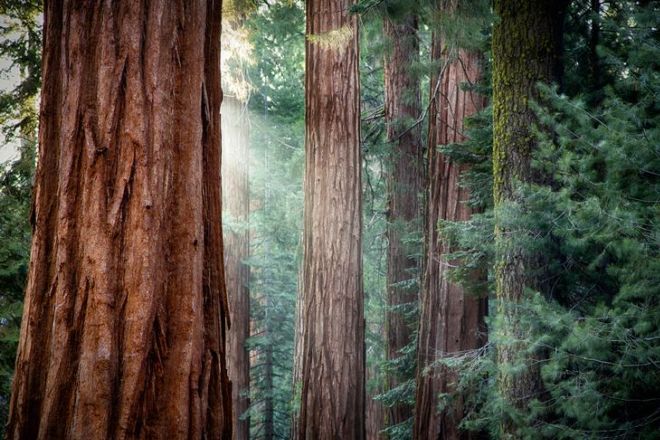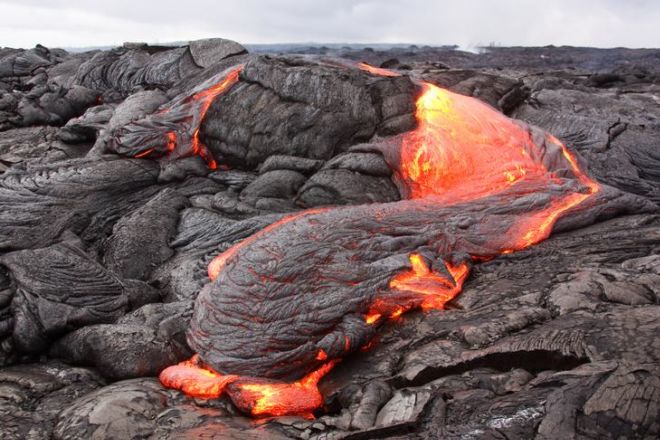Re: 20 Amazing Facts To Raise Your Knowledge
Posted: Thu Feb 21, 2019 10:58 am
13. Some Trees are Fire-Resistant

Redwood and Sequoia trees have a bark that builds up over time to protect them from the elements. The bark, which may be up to one foot thick, contains tannin. This provides protection against fire and fungus. Tannin solutions are used regularly in contracting wooden building to mitigate any potential for fire damage.
14. Your Pencils Can Be Made into Diamonds
Science has a glamorous side to it. Graphite can be transformed into a diamond by applying a temperature of 3,000 degrees Celcius and pressure of 100,000 atmospheres. Graphite and diamond share the same chemical element, carbon. This technique isn't reserved for jewelry-diamonds, are used for a variety of industrial applications, including cutting tools to electronic devices.
15. There’s a Rock That Floats

Pumice is a volcanic rock that is produced when lava erupts from a volcano. It then cools with a lot of small gas bubbles. Because of all the bubbles, it is less dense than water. It is also great for scrubbing away dead skin. However, if it's in water for too long, it will eventually become waterlogged and sink.
16. You’re Not Really Seeing Black in a Pitch-Black Room
What you are actually seeing is 'dark light', or 'eigengrau' - often referred to as 'brain grey'. It's completely uniform dark, almost black, a gray background that many people state they see in the absence of light. There are people who prefer to call what they see 'visual noise' because what they are actually seeing is an ever-changing field of tiny white and black dots.
17. There’s a Trick for Discovering a Two-Way Mirror

If you walk up to a mirror and place your fingertip or nail against it, if you notice the reflection of your finger directly touches your finger, it's a two-way mirror. But if there is about a 1 cm distance between your finger and the reflection, it's not.
18. There’s a Purpose to Those Tiny Pinholes in Airplane Windows
The holes you may have noticed in airplane windows are called 'breather' or 'bleed' holes. Airplane windows have three panes each. The breather hole being in the middle to equilibrate between the cabin and the gap between the outside windowpanes. This helps alleviate pressure so that neither the outside nor inside panes crack.

Redwood and Sequoia trees have a bark that builds up over time to protect them from the elements. The bark, which may be up to one foot thick, contains tannin. This provides protection against fire and fungus. Tannin solutions are used regularly in contracting wooden building to mitigate any potential for fire damage.
14. Your Pencils Can Be Made into Diamonds
Science has a glamorous side to it. Graphite can be transformed into a diamond by applying a temperature of 3,000 degrees Celcius and pressure of 100,000 atmospheres. Graphite and diamond share the same chemical element, carbon. This technique isn't reserved for jewelry-diamonds, are used for a variety of industrial applications, including cutting tools to electronic devices.
15. There’s a Rock That Floats

Pumice is a volcanic rock that is produced when lava erupts from a volcano. It then cools with a lot of small gas bubbles. Because of all the bubbles, it is less dense than water. It is also great for scrubbing away dead skin. However, if it's in water for too long, it will eventually become waterlogged and sink.
16. You’re Not Really Seeing Black in a Pitch-Black Room
What you are actually seeing is 'dark light', or 'eigengrau' - often referred to as 'brain grey'. It's completely uniform dark, almost black, a gray background that many people state they see in the absence of light. There are people who prefer to call what they see 'visual noise' because what they are actually seeing is an ever-changing field of tiny white and black dots.
17. There’s a Trick for Discovering a Two-Way Mirror

If you walk up to a mirror and place your fingertip or nail against it, if you notice the reflection of your finger directly touches your finger, it's a two-way mirror. But if there is about a 1 cm distance between your finger and the reflection, it's not.
18. There’s a Purpose to Those Tiny Pinholes in Airplane Windows
The holes you may have noticed in airplane windows are called 'breather' or 'bleed' holes. Airplane windows have three panes each. The breather hole being in the middle to equilibrate between the cabin and the gap between the outside windowpanes. This helps alleviate pressure so that neither the outside nor inside panes crack.